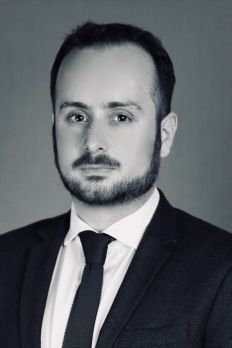Olivier is a professor of political science and head of the Center for War Studies, University of Southern Denmark. He is also a founding member of the French Association for War and Strategic Studies (AEGES), of which he was the vice-president and scientific director, and a board member of the European Initiative for Security Studies (EISS).

@Olivier1Schmitt OlivierSchmitt.com
What are you currently working on?
I am working on several main projects. The first one is an examination of French defence and security policy since 1991. The main outputs so far have been a number of book chapters and articles (already published or forthcoming), but I am completing the revisions of a book on this topic co-authored with my friend and colleague Alice Pannier from SAIS, and which should be published later this year or early next year.
The second project is a co-edited volume with my CWS colleagues Sten Rynning and Amelie Theussen on temporality and western warfare. We argue that the “Western way of war” is marked by a specific relationship to temporality (understood as the combination of trajectories, perception of time, and pace), which shapes the way we design our armed forces and employ military forces. We thus shed new light on the debate about the declining utility of western military power. The book is also in the revision stage and should come out early next year with Brookings/Chatham house Press.
The third project is a multi-year study of the dynamics of change in the armed forces. Basically, I try to bring some conceptual clarity to a multiplicity of terms routinely employed in the literature but diversely defined (military revolution, transformation, innovation, adaptation, diffusion, emulation, etc.), and to explore the interaction between different mechanisms shaping the trajectory of the armed forces (civil-military relations, threat assessment, technological developments, routines and practices, etc.). As part of the project, I am co-authoring an article with two of my PhD students, Vicky Karyoty and Michael Gjerdstad, comparing the genesis and implementation of three cases of what we call “declared innovation” (States openly claiming to adopt an innovation policy for their armed forces) in the US, France and Russia. And I hope that this project will lead to my next book, looking at patterns of transformation in the armed forces since 1870.
What got you into your field of study in the first place?
Probably my grandfather. He was a veteran of the Algerian war: he joined a paratrooper regiment as a private, fought for three years and was part of the failed putsch attempt against De Gaulle in 1961. He left the armed forces afterward to work in the naval industry but was evidently deeply marked by the experience. He developed a strong personal interest for military history, especially World War II. Growing up, there were always many military history books around the house for me to look at, and he would also never miss any TV documentary (especially on the Franco-German channel ARTE),which I would end up watching with him. I think that this is what got me interested in defence issues in the first place, and indirectly led me to study political science, and then international relations and war studies.
What was your path to where you are now?
Quite a bit of luck actually. I started studying political and social sciences in France as an undergrad and interned at the French military mission in Berlin. I thought I wanted to work for the United Nations, and joined the Graduate Institute of International and Development Studies in Geneva, for a master in International Affairs. This is where I got my first exposure to what research could be like, when I attended a research seminar on international sanctions led by Prof. Thomas Biersteker, where MA and PhD students were mixed. We had to read about 130 pages every week, and write a 9000 words research paper at the end. It sounds standard for a graduate program, but it was totally new for me: I had joined a professional MA degree, but absolutely adored the research experience.
The second turning point was when I had to write a research paper for a class on international organisations taught by Prof. Stephanie Hofmann, which I ended up writing on the challenges of coalition warfare. I got totally fascinated by the topic and, after several discussions with my professors in Geneva, decided to pursue a PhD. This paper formed the basis of my PhD proposal, with which I approached Prof. Theo Farrell at King’s College London. I was accepted into the program, completed my PhD (thanks to a scholarship from the French MoD) and left Europe for a one-year post-doc at the University of Montréal Centre for International Studies (CERIUM). I was then fortunate tojoin the Center for War Studies at SDU in 2015. So in retrospect, I have been lucky to identify what I was really interested in early enough thanks to this research seminar, to find mentors that were always willing to help and support me along the way, and to land a job. As Machiavelli pointed out, our paths are made of both virtù and fortuna: we like to tell ourselves that careers are based on merit, and of course quality work matters, but luck also plays a huge part in it.
What are you currently reading and is it any good?
I will only talk about books I liked, because I think it is unfair to criticise authors outside of a context in which their argument would be adequately engaged with and they get a chance to respond to criticism.
So here are some books I read recently and found enriching:
J.C Sharman, Empires of the Weak, which provides a global context for the so-called “Military Revolution” in Europe.
Ben Buchanan, The Hacker and the State, on the “new normal” of cyber conflict
Peter Westwick, Stealth, which is a fascinating socio-history of the development of stealth technologies for aviation, and the competition between Lockheed and Northrop Grumann (leading to two very different designs for the F-117 and the B-2).
Next on my reading list are:
Thomas Rid, Active Measures
Jason Lyall, Divided Armies
Lorenz Lüthi, Cold Wars
As leisure, I like reading a lot of science-fiction, and I am currently reading the third volume of the Revenger Trilogy by Alastair Reynolds.
What is your favourite book in your field of study and why?
It’s a really hard question, and this is far from being a definitive answer, but I realize I often come back to Michael Howard’s War and the Liberal Conscience, which raises many important political and philosophical questions in a clear, elegant and concise manner.
What advice would you like to give PhD students and early career researchers that you wish someone had said to you?
I actually think I had been properly “warned” before getting in, so here are some generic advices:
Find a group of fellow junior academics while doing your PhD: it is important to socialize, to have moral support, and even opportunities for cooperation. -
Establish a trust-based relationship with your supervisor early on. Be explicit about what you expect from the supervision and discuss practicalities with your supervisor.
When it comes to publications, find the balance between strategising and passion. Yes, a well-placed journal article takes time and can have strong positive effects on your career, but passion is ultimately what sustains you in the long run.So don’t necessarily discard a project with less obvious career benefits if you are strongly interested in it: it will keep you motivated and it may even pay off in unexpected ways.
Who have been the most influential academics on your professional career?
As mentioned, a number of people have been amazing mentors and played an important role in my career. First, my thesis supervisor, Theo Farrell, was always extremely supportive of my project. He also managed to drag me into the field of military innovation/military change.
Stephanie Hofmann has also been a wonderful mentor: always friendly and willing to help. I don’t know how many letters of recommendation she wrote for me over the years, but it is a lot... The same goes for Frédéric Mérand, thanks to whom I had a full year of post-doc to concentrate exclusively on publications.
I owe the scholarship that allowed me to do a PhD to Frédéric Ramel and Frédéric Charillon, so I can’t thank them enough for their support. Of course, Sten Rynning hired me at SDU, so he had a strong influence on my career. And finally, I would like to mention the late Bastien Irondelle, with whom I had the chance to co-author a book chapter before he passed away, who was extremely invested in supporting young scholars. My trajectory would have been very different without them.
In terms of intellectual influences, my role-models are Raymond Aron and Michael Howard, which is probably logical for a French scholar of war studies who graduated from King’s College London... Among contemporary researchers, there is too many people I admire to mention them all, but Michael Horowitz, Sarah Kreps, the late Patricia Weitsman, Steve Saideman, Pascal Vennesson, Caitlin Talmadge, Beatrice Heuser, Lawrence Freedman and Elizabeth Kier have, knowingly or unknowingly (I have never met some of them), strongly shaped the way I think about my research.
